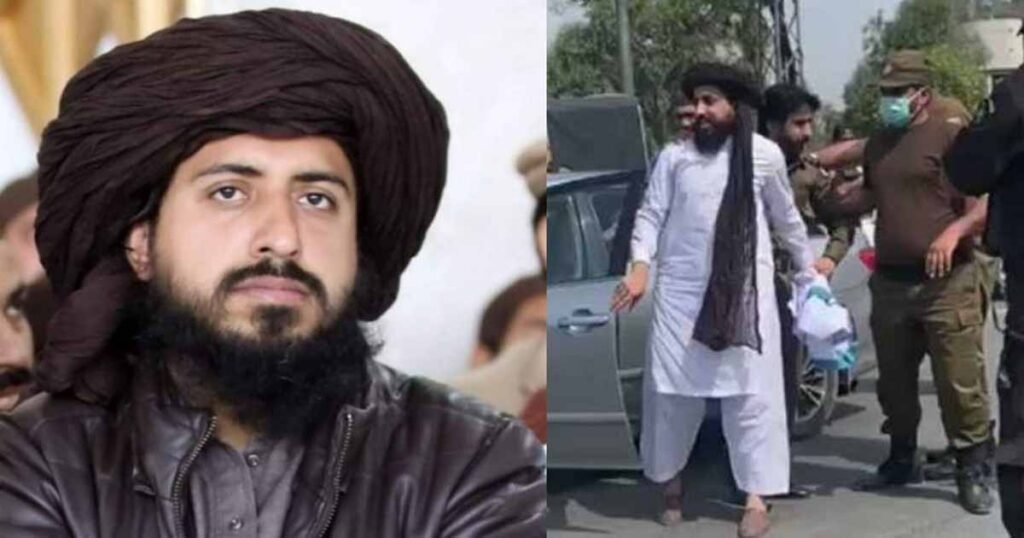Clearly, the recent street incidents in some parts of Pakistan have shown the potential for an unprecedented presence of angry mobs and groups, threatening, intimidating and harming other citizens, paralyzing normal life. And demonstrated its ability to harm law enforcement agencies by violently attacking the police. . There was no precedent for this scale because they had the potential to spread violent violence, which we saw in the form of viral social media posts.
Although peaceful protests are constitutional, violent protests take citizens and the state hostage and make unreasonable demands. Yet Pakistan is rife with current patterns where decision-makers, whether elected or unelected – have ignored or encouraged such violent and unconstitutional protests that have often attacked other citizens.
Interestingly, the representatives of the current government did not say much about the situation in the country. Even after the cabinet meeting. The discussion at the post-cabinet press conference was mainly on finance and politics. However, in response to a question, Minister Fawad Chaudhry said that everything would be fine and no one could negotiate with the government.
The love of the TLP supporters for our beloved Holy Prophet (PBUH) is naturally shared by the whole country and beyond. In the current situation, however, they (TLP) were misguided and misguided – in which the Pakistani people were held hostage, state workers were attacked, violence was resorted to and policy action was demanded. In November 2017, during the PML-N government, he misunderstood a small text change that led to his first sit-in in Faizabad during which he stopped traffic. Was He (TLP) did not have to pay any fines for engaging with them and breaking the law. Opposition parties at the time, including the PTI, also spoke in his favor.
The same situation was repeated in 2018 after the decision of Asia BB. The government dispersed the situation by promising to include Asia Bibi’s name in the ECL. Similarly, in 2020, TLP leaders demanded the deportation of the French ambassador as well as other censorship measures in bilateral relations between France and Pakistan. The government agreed to the TLP’s demands in a written statement signed by the ministers, and recently the deadline for taking the matter to parliament was April 20. Finally, a few days ago, the current TLP leader released a video message announcing a country. If the issue is not taken up in Parliament, go on a massive strike on April 20. Then came the crackdown. Then on Wednesday night, the government announced that it had banned the TLP.
The fact is that conversation and conversation are acceptable – but not intimidating. The state writ cannot be challenged. In any case, the government says France has raised the issue viciously, both at the French and international level, with the adoption of the OIC resolution.
There are a number of issues arising from the recent TLP protests. There are three main ones. One, the constitutional right of protest given to every citizen in Pakistan is a right that must be exercised under parameters that do not infringe on the rights of other fellow citizens. If a group or party chooses to protest, which means blocking the streets, preventing the critically ill from receiving medical treatment and depriving the people of their daily lives, they are not exercising their right to constitutional protest.
This is also reflected in the decisions of the country’s highest court, as recently as in 2020 when the JUI-F called an anti-government sit-in. Earlier, during the PTI’s long sit-in in 2014, the Supreme Court had issued similar orders allowing parliamentarians access to parliament when the PTI blocked the area around parliament.
Similarly, during the lawyers’ movement in 2006, the administration went to various places to stop the gatherings, according to which it believed that there was an obstruction to normal traffic.
Second, the right to protest also needs to be examined to force policy changes. A policy that infringes on the fundamental rights of the citizens or the collective interest guaranteed by the Constitution of Pakistan seems to be a good point for protest. However, would it be permissible to protest a change in foreign policy?
Foreign policy is the business of the government and the state and the question of whether the conduct of foreign policy supports the citizens of a country and promotes their interests and fundamental rights is determined by the fact that foreign policy How it helps to promote policy decisions in the interest of the citizen protected by the Constitution of Pakistan.
There is also a complex context, bilateral and global, in which foreign policy is conducted. Bilateral and international law, treaties and agreements affect policy decisions and how they affect the national interest. Foreign policy decisions cannot be taken out of unwarranted anger on the streets.
It should be the business of the government and parliament to uphold all national interests and fundamental rights, including all basic elements of faith, with the highest respect. As every government has raised the issue of blasphemy whenever.
Third, the confused and deviant views of elected and unelected decision-makers have often described state business as weak and detrimental to Pakistan’s interests. These decisions will have to be discussed using a parliamentary forum, including parliament, committees and the cabinet.
Often – in order to control policy decisions – the path of protest was taken by those who chose to patronize sub-state groups. During the Afghan jihad era, such snow-covered practices have reached a peak in recent years. It seems that we have hardly learned a lesson from the tragic defeat of the Red Mosque. Hopefully, we will now realize that there are many internal and external compulsions to change our misconceptions of the past.
Powerplays often emphasize the need to establish the rule of law, with such groups competing for power. And often sponsors institutions that are historically so-called. Such groups have also been used in the field of national security.
In a region where states have been using actors from all states as tools of foreign policy against each other, state patronage will be inevitable. Perhaps the TLP’s political journey, its rivalry and protests against the Nawaz Sharif government, its understanding and support from various groups and institutions, its subsequent engagement and agreement with the present government and today it stands – all It provides an example of the deeper memories of the past and the resulting troubles we face today.
The past has been complicated and somewhat self-destructive when the government and the state are trying to establish the rule of law. Now the question is if all those involved in Pakistan’s power play have definitely concluded that sponsoring, advancing or deploying sub-state groups to fight internal power struggles is a thing of the past. There is a way.
Tail piece: Fortunately, the human race has been given a choice of refinement and re-imagining, redesigning and re-implementing on the drawing board to create better models. However, great leadership is needed to ensure this. Pakistan does not lack it, provided no vile game is played.
The author is a senior journalist.
Email: nasimzehra@gmail.com
Twitter: nasimzehra


